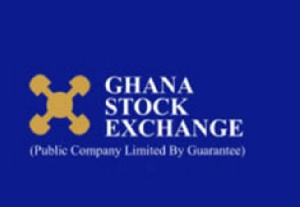Managers of the Ghana Stock Exchange (GSE) have called for a speedy recovery of the economy to restore much needed investor confidence on the stock market and rally stocks.
The stock market has been volatile in recent times, which usually presages a bear market, prompting the GSE to call for turnaround of the economy to be accelerated to bring back investor appetite.
A new Council Member of the GSE, Albert Essien in an interview with the B&FT at the bourse’s annual general meeting in Accra noted: “The exchange is an operator in the economy and once the economy goes through shocks the exchange will go through shocks.
“What needs to be done is for the economy, in which the exchange is an operator, to pick up. There are signs but I think we all need to work quickly for it to pick up. The exchange rides on the positive way of the economy.”
The GSE Composite Index which measures the performance of the entire market registered a negative return of 11.77percent in 2015 as against a positive return of 5.4percent in 2014. In the first half of 2016, the Composite Index has declined by 10.41percent while the GSE-Financial Index, which tracks the performance of only financial stocks, has also dropped by 13.28percent.
According to the outgoing Council Chairman of the GSE, Dr. Sam Mensah, the listed companies bore the brunt of the negative impact of the energy crisis and fluctuation of the cedi explaining that an economic recovery will “likely” restore some optimism in the market.
“Once the economy gets better and listed companies continue to do well, it is likely the stock market will bounce back to strong growth,” Dr. Mensah also told the B&FT.
Market turnover in 2015 was also lower than the previous year with volumes of traded shares of 246million shares valued at GH¢247million compared to the volume and value of 207million and GH¢346million respectively recorded in 2014.
Market capitalisation also took a hit and as at the end of December, 2015 the entire market value was GH¢57.1billion compared to GH¢64.4billion in 2014, representing a decline of 11percent. The first half of 2016 also saw it drop further to GH¢54.72billion.
Touching on a lack of listings in 2015 and the first half of 2016, especially on the main bourse, Mr. Essien, a highly respected banker and former Group Managing Director of Ecobank Transnational Incorporated (ETI), noted that companies will come to the bourse on the back of a strong performance of listed equities.
“If liquidity on the exchange is positive then others will come. Once companies look at those who have listed and are not meeting expectations then they will stay put,” he said.
He therefore called for continuous education to companies and selling the advantages of listing on the bourse. “This is the best time to buy. You buy when it is low and that education should go through. Most of the time we buy only for dividend and forget capital appreciation and this education should continue but to me this is the best time to buy,”
The exchange’s composite index has seen a slump that has lasted for the past three years as a fall in commodities prices, currency volatility and power crisis has dampened economic growth.
With the index having fallen to a three-year low and interest rate on debt very high, some of the biggest listed companies have had to rely on rights issues and private placements to raise capital.
Guinness Ghana Breweries and Ghana Oil together have sold GH¢353million in rights issues, while UT Bank and Societe Generale are planning to raise at least GH¢241million. These right issues, according to a report by Bloomberg, would be the most in a year since the Ghana Stock Exchange started operating in 1990.
The exchange, as a company, saw operating income increase to GH¢10.18 million in 2015 from GH¢8.45 million in 2014. Income from associates increased from GH¢ 820,000 in 2014 to GH¢1.69 million in 2015.
Business News of Monday, 18 July 2016
Source: thebftonline.com

















